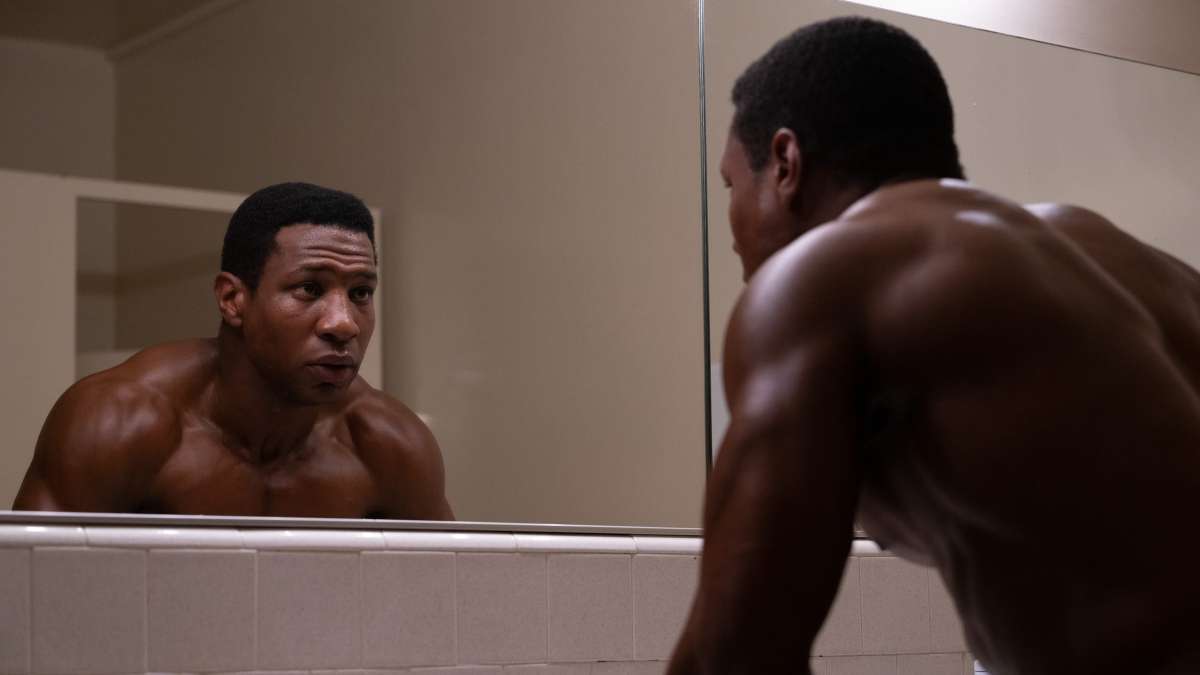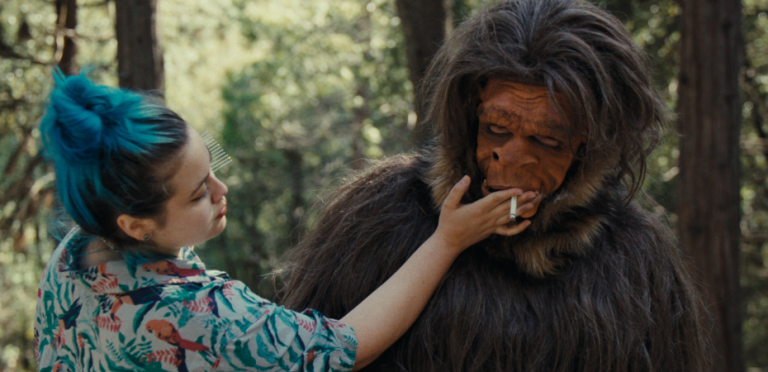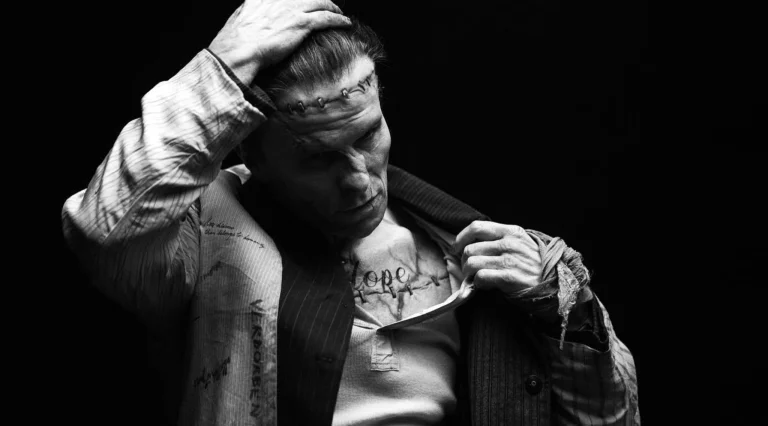The vain pursuit of perfection is a part of what makes us all human, just as much as the eventual hard realization that such pursuits can never be fulfilled. Some of us come to this truth with greater difficulty than others—the airbrushed posters of our heroes are simply too tempting as roadmaps to a future we believe is possible with enough discipline—but Elijah Bynum shows just how damaging this path can be when one’s focus is so narrow that they refuse to engage with the outside world.
I am, of course, referring to how “Magazine Dreams” (2025) comes across as a film, rather than what it’s about; textually, Bynum’s second feature is also about such fruitless ambitions, but he does a far better job of demonstrating the failure of blind ambition through his stumblings as a storyteller than through the cartoonish spiraling of his onscreen subject. Much like that subject, Bynum is so focused on crafting an enviable surface that he fails to take into account the brittle interior that cracks from the lack of attention.
The subject in question is Killian Maddox (Jonathan Majors), an aspiring bodybuilder whose discipline in sculpting his abs is almost comparable to his complete inability to sculpt his social skills. A man so removed from social graces that every interaction reads like a first interaction, Maddox carries himself as though his perfectly chiseled body is an “Under the Skin”-style flesh suit being inhabited by an extraterrestrial sent to try (and fail) to ingratiate itself among us unsuspecting humans.
Similar to Magazine Dreams: The Iron Claw (2023) Movie Review
No doubt there are people in the world with Maddox’s particular depth of social constipation, but his is of an especially intense variety—the man Googles “how to make people like you” and watches porn with a protein shake by his side as though he were studying mating rituals on Animal Planet. Suffice it to say, his drive to perfect his body as a champion of his craft, despite the deep-seated insecurities of a broken childhood and fickle ego, drive Maddox to a point of complete and total mental collapse as inevitable as the eruption of Mount Vesuvius.
At least, this is what one would reasonably assume to be Bynum’s goal, as “Magazine Dreams” remains so singularly focused on its one and only lead—supporting players like Haley Bennett, Taylour Paige, and Harriet Sansom Harris only seem to exist as jumping-off points to Majors’s increasingly frequent outbursts—that there’s really nothing else for the film to rest upon besides his apparently inadequate deltoids. Those outbursts, a frequent result of underlying rage (an unfortunate character trait given the conviction of the actor playing him that resulted in the film’s two-year pushback), feel inevitable at each turn, but less in the sense of organic reactions from a deeply broken man, and more like the flimsy characterization of an entirely shallow script.
“Magazine Dreams” traffics in prolonged bouts of awkward character interaction whose particular emotional register, like that of its lead, is never easy (or often even possible) to pinpoint. Were Bynum to come out and declare this film as a satirical comedy lampooning “Taxi Driver” ripoffs, I would be inclined to call him an absolute genius; as it stands, everyone both within and outside the film appears to be taking with deadly seriousness, making each and every creative choice feel that much more confounding in its desire to grasp the entire gamut of downward spiral clichés within the span of two hours. Bynum never asks “What is the next logical step in Maddox’s decaying mental state?” but rather “Which second-act trope can I throw in now, while there’s still time before the credits roll?” (His solution, then, is simply to prolong the time spent until those credits mercifully arrive.)
Also Read: Analyzing Whiplash’s Final Scene
It isn’t so much that Maddox’s deterioration in itself is an unbelievable development in the face of interpersonal ineptitude combined with a cocktail of steroids and 6000-calorie meals, but rather that his story begins at an 11 and only goes up from there. In that sense, one might positively view “Magazine Dreams” as a direct passage into the gaping black hole of blind aspiration, but without a baseline sense of understanding to start from, what we get is more tonally akin to a Darren Aronofsky rendition of the second act of “Whiplash,” soundtracked entirely by Eminem’s “Stan” played on an endless loop. (Call it a reverse-“Whale,” perhaps?)
Even as a showcase for Jonathan Majors’s control as a performer, “Magazine Dreams” only really serves to demonstrate an actor perfectly attuned to the idiosyncrasy of a character study that has no idea what, if anything, makes that character worth ogling beneath all the baby oil. If Majors succeeds at all, it’s in communicating the exact same feeling of emptiness masked behind the certainty of form that Elijah Bynum leaves us with from the first minute to the last.









![An Elephant Sitting Still [2018]: ‘TIFF’ Review – A Gritty Romanticism with Fatalism](https://79468c92.delivery.rocketcdn.me/wp-content/uploads/2018/09/elephantsittingstill_07-768x384.jpg)